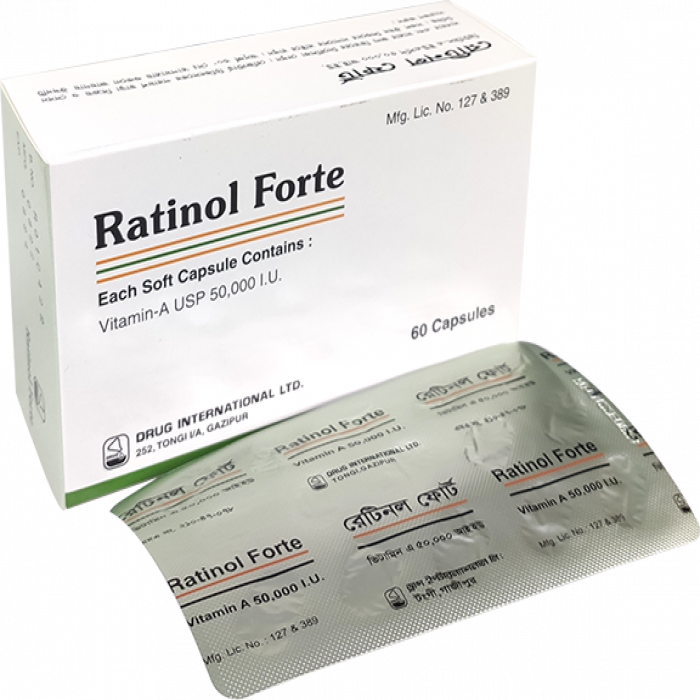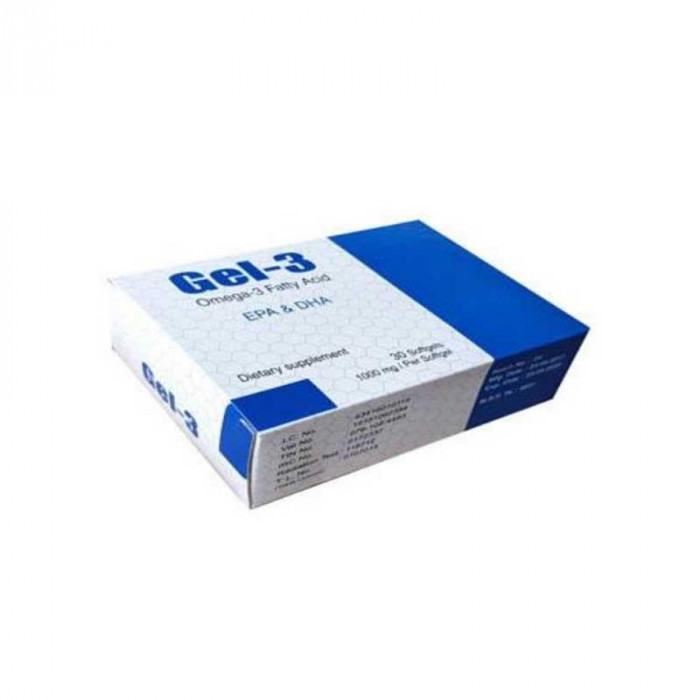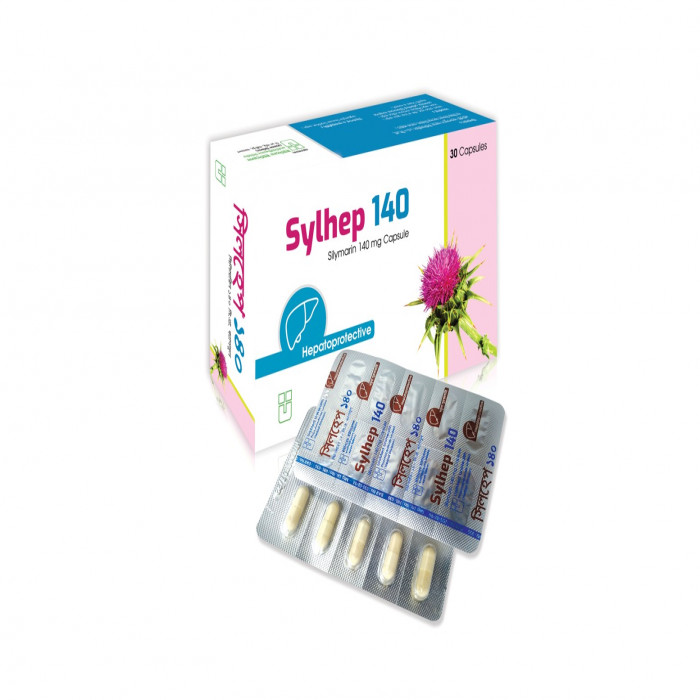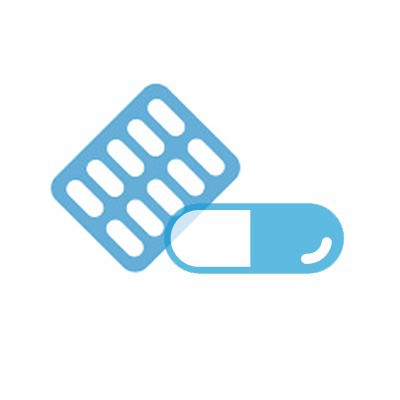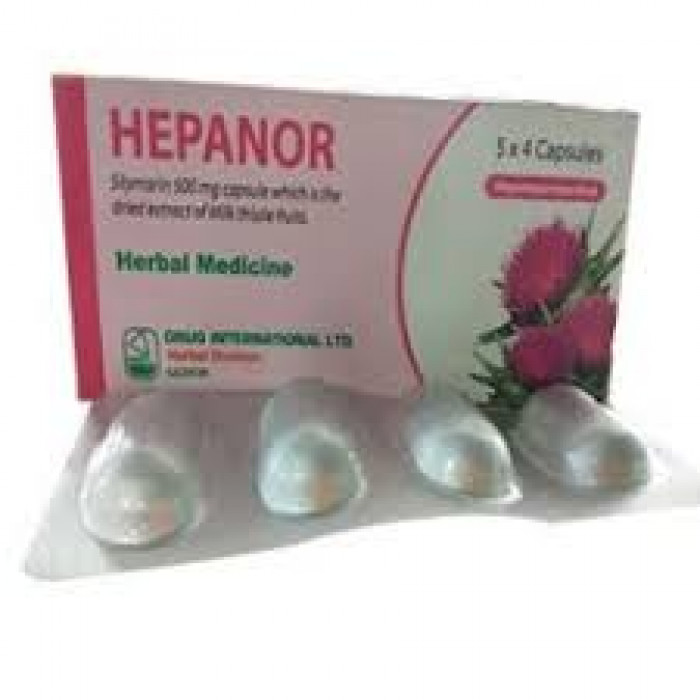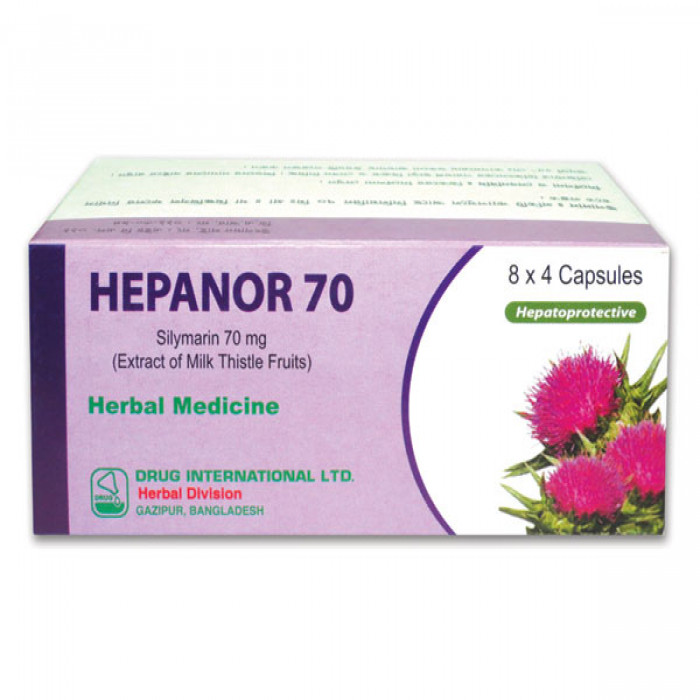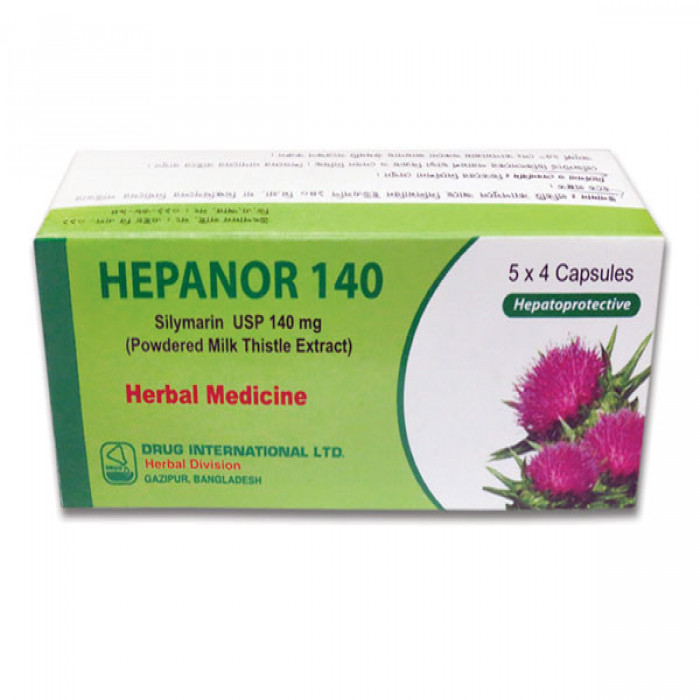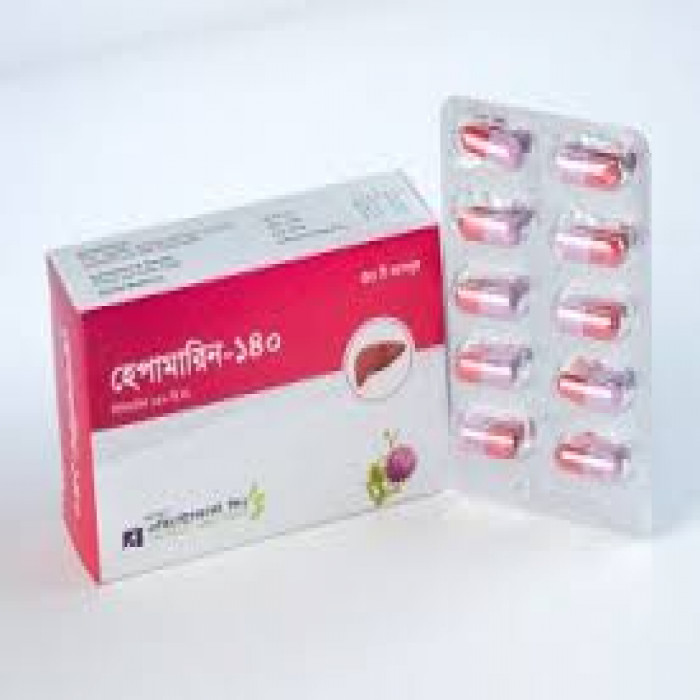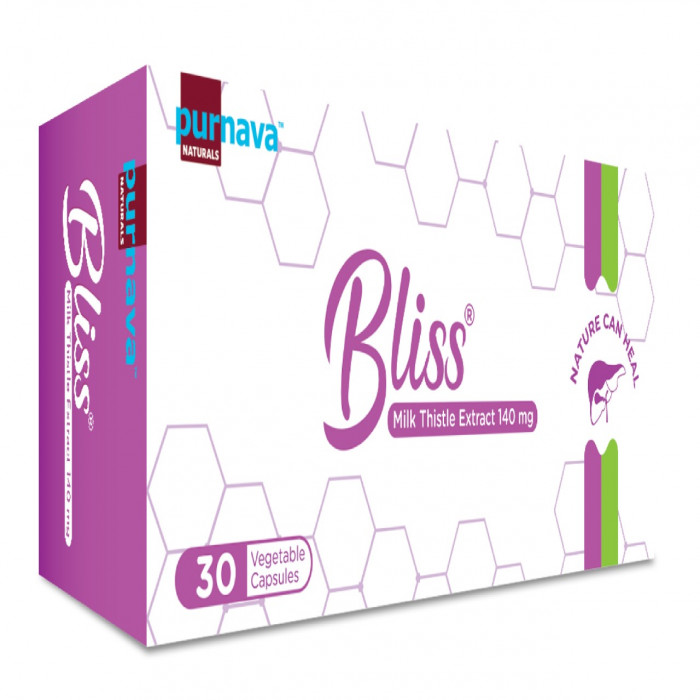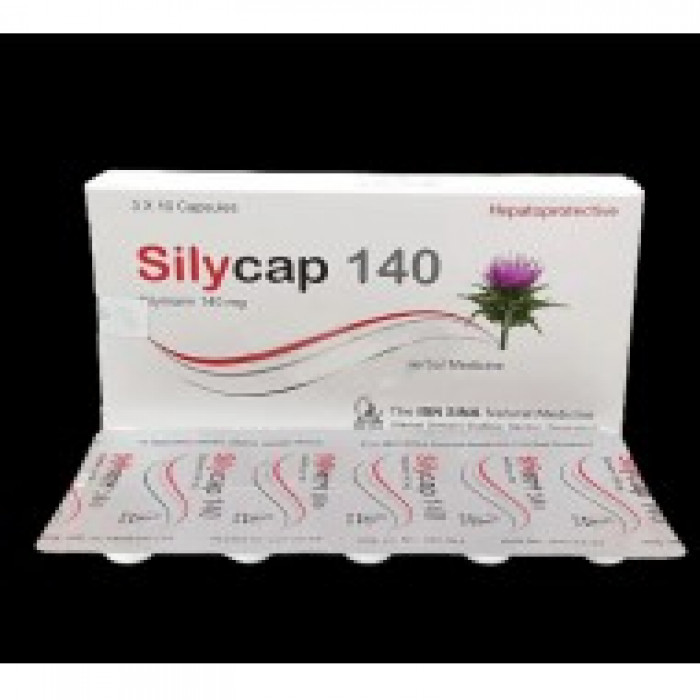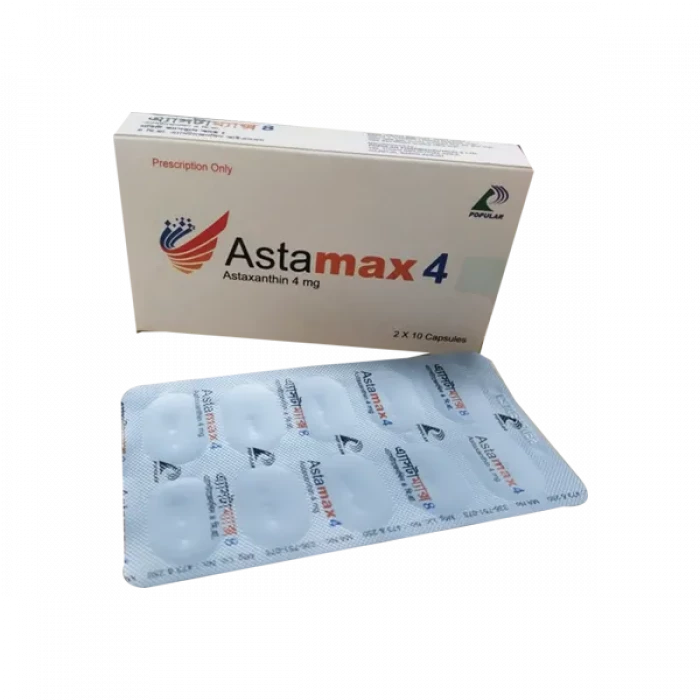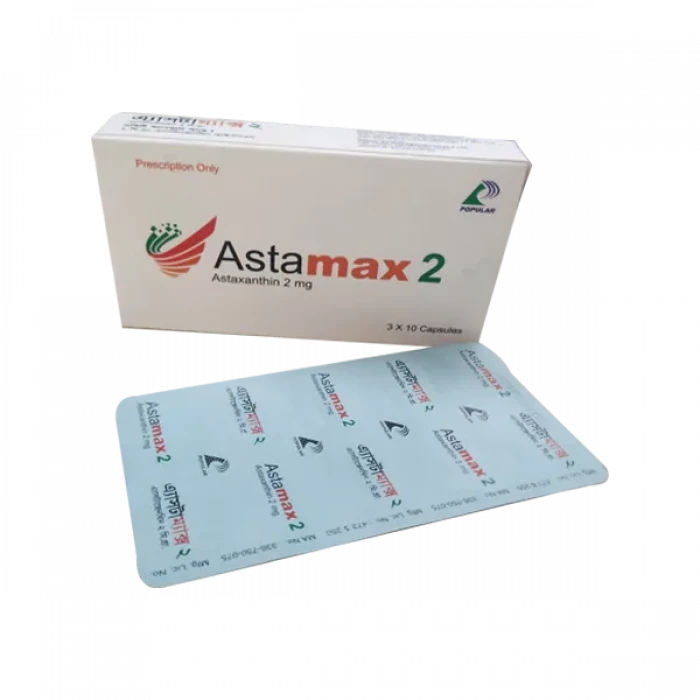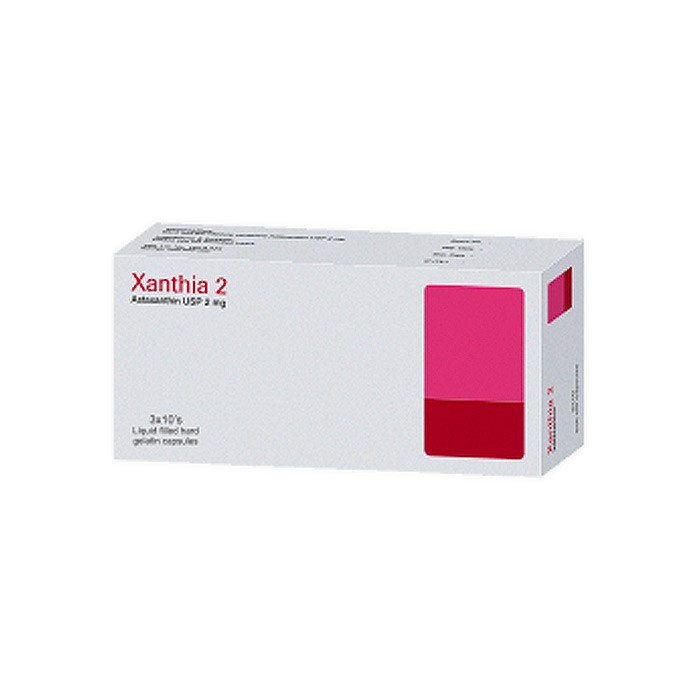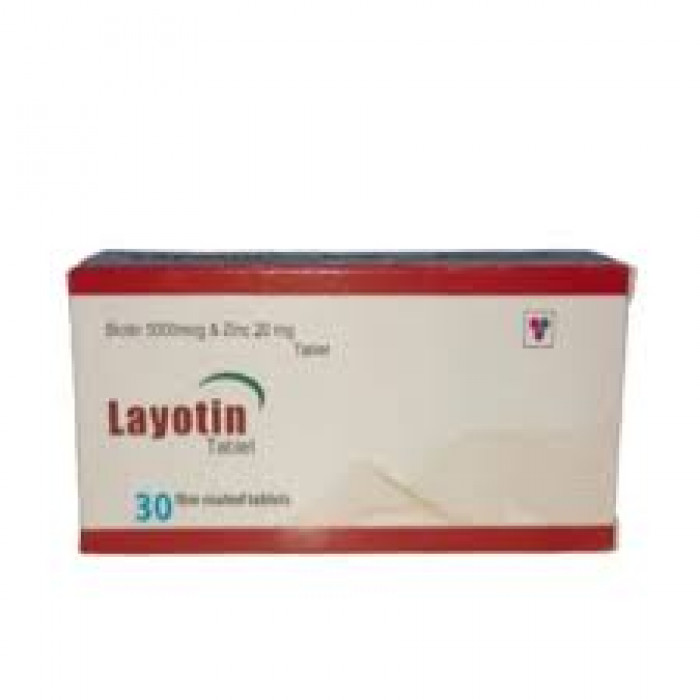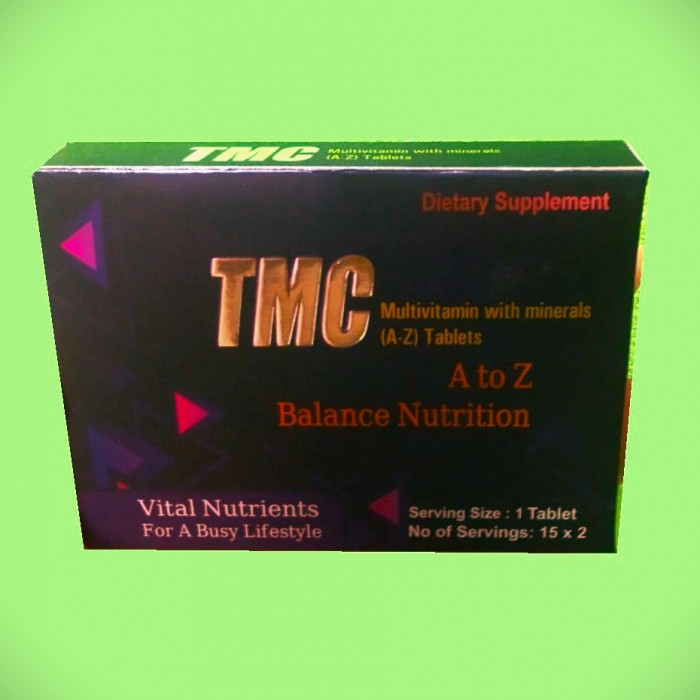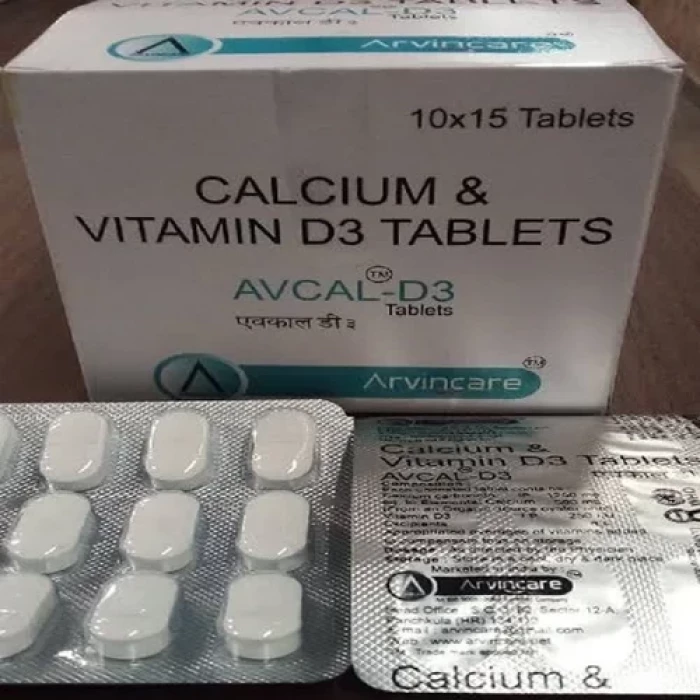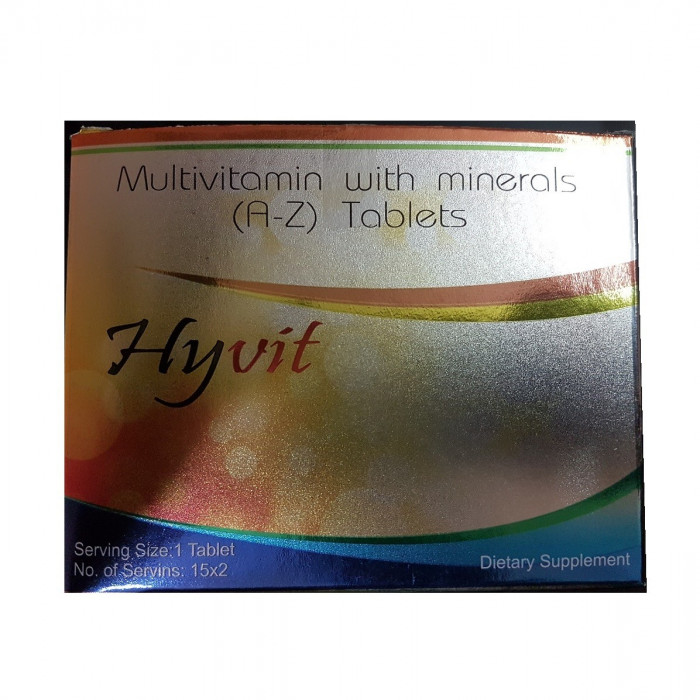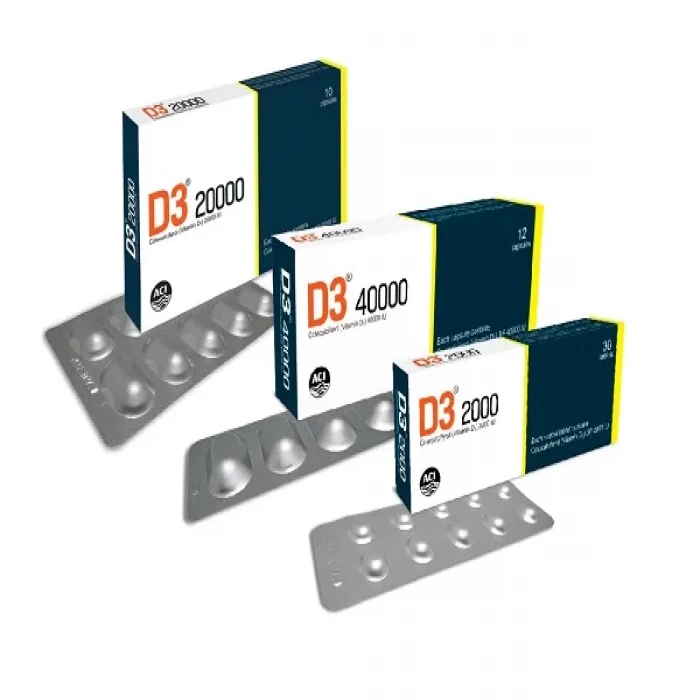
✔ 100% Authentic Product
👁️ Currently Viewing 2220
D3® is indicated for the prevention and treatment of colecalciferol (Vitamin 03) deficiency of the following conditions-
Bone disorders (such as rickets, osteomalacia)
Prevent bone loss (such as osteoporosis)
Low levels of calcium or phosphate caused by certain disorders (such as hypoparathyroidism, pseudohypoparathyroidism, familial hypophosphatemia and tetany caused by hypocalcaemia)
During kidney disease to keep calcium levels normal and allow normal bone growth
During pregnancy (6th or 7th month) and breastfeeding, an essential nutrient for a growing infant
Pre-eclampsia during pregnancy
Menopause

100% Genuine Products, Guaranteed
Safe & Secure Payments, Always
Fast, Secure & Efficient Delivery
Proper Packaging
 Cash on Delivery - All over Bangladesh
Cash on Delivery - All over Bangladesh Regular Delivery - 12-24 Hours, Dhaka City*
Regular Delivery - 12-24 Hours, Dhaka City* Regular Delivery - 24-48 Hours, All Over Bangladesh*
Regular Delivery - 24-48 Hours, All Over Bangladesh* ফ্রি ডেলিভারিঃ - ৯৯৯ টাকা+ অর্ডারে, ঢাকা
শহরে
ফ্রি ডেলিভারিঃ - ৯৯৯ টাকা+ অর্ডারে, ঢাকা
শহরে ফ্রি ডেলিভারিঃ - ২৯৯৯ টাকা+ অর্ডারে, ঢাকার
বাহিরে
ফ্রি ডেলিভারিঃ - ২৯৯৯ টাকা+ অর্ডারে, ঢাকার
বাহিরে
✅ Description:
Indication
Osteoporosis, Hypoparathyroidism, Rickets, Osteomalacia,Vitamin D Deficiency, Pseudohypoparathyroidism, Familial hypophosphatemia
Administration
May be taken with or without food.
Adult Dose
Oral /IM: Nutritional deficiency Colecalciferol (Vitamin D3) is recommended 5-10 mcg or 1-2ml (200-400 IU)/day Osteoporosis Prophylaxis and treatment >50 years: 800-1000 IU (20-25 mcg) PO once daily with calcium supplements. May also be given via IM inj. Hypoparathyroidism 50,000-200,000 IU (0.625-5 mg) PO once daily with calcium supplements. May also be given via IM inj.
Child Dose
Nutritional Supplementation RDA 0-12 months: 400 IU (10 mcg) PO once daily 1-18 years: 600 IU (15 mcg) PO once daily Vitamin D-Resistant Rickets 12,000-500,000 IU (0.3-12.5 mg) PO once daily Familial Hypophosphatemia 40,000-80,000 IU (1-2 mg) PO once daily with phosphate supplements; may be reduced after stage of growth is complete
Contraindication
Colecalciferol is contraindicated in all diseases associated with hypercalcaemia. It is also contraindicated in patients with known hypersensitivity to Colecalciferol (or medicines of the same class) and any of the constituent excipients. Colecalciferol is contraindicated if there is evidence of vitamin D toxicity.
Mode of Action
Vitamin D3 is a fat-soluble sterol. It is necessary for the regulation and regulation of calcium and phosphate homoeostasis and bone mineralisation. Vitamin D is also essential for healthy bones as it aids in Calcium absorption from the GI tract. In addition to this it stimulates bone formation.
Precaution
People with the following conditions should exercise caution when considering taking vitamin D supplements: High blood Calcium or Phosphorus level Heart problems Kidney disease Vitamin D must be taken with adequate amounts of both Calcium and Magnesium supplementation. When Calcium level is low (due to insufficient vitamin D and calcium intake), the body activates the parathyroid gland, which produces PTH (parathyroid hormone). This hormone kick starts vitamin D hormone production and assists removal of Calcium from the bones to be used in more important functions such as neutralizing body acidity. Lactation: Drug is distributed into breast milk; use with caution
Side Effect
Generally all nutritional supplements are considered to be safe and well tolerable. However, few side-effects can generally occur including hypercalcaemia syndrome or Calcium intoxication (depending on the severity and duration of hypercalcaemia), occasional acute symptoms include anorexia, headache, dry mouth, nausea, vomiting, abdominal pain or stomach ache and constipation with the administration of Colecaciferol.
Interaction
Increased risk of hypercalcaemia if given with thiazide diuretics, calcium or phosphate. Antiepileptics (e.g. carbamazepine, phenobarbitone, phenytoin & primidone) may increase vitamin D requirements. Rifampicin & isoniazid may reduce efficacy of vitamin D. Corticosteroids may counteract the effect of vitamin D. Digoxin or any cardiac glycoside. Reduced absorption when taken with cholestyramine, colestipol, mineral oil, orlistat. Ketoconazole.
⚠️Disclaimer:
At ePharma, we’re committed to providing accurate and accessible health information. However, all content is intended for informational purposes only and should not replace medical advice from a qualified physician. Please consult your healthcare provider for personalized guidance. We aim to support, not substitute, the doctor-patient relationship.





